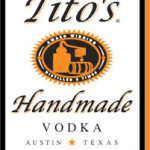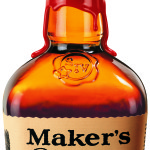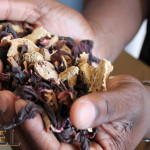When is the term ‘craft’ authentic and when is it marketing hype?
 The spirits industry has seen amazing growth of craft distillers and brands. The Distilled Spirits Council of the US (DISCUS) has reported that there are nearly 730 “small” distilleries producing 3.5 million cases in 2014 (up from 700,000 in 2010) and with revenues of nearly half a billion dollars.
The spirits industry has seen amazing growth of craft distillers and brands. The Distilled Spirits Council of the US (DISCUS) has reported that there are nearly 730 “small” distilleries producing 3.5 million cases in 2014 (up from 700,000 in 2010) and with revenues of nearly half a billion dollars.
This craft spirits development is here to stay based on a number of factors including the interest in whiskies of all types; consumer trends regarding connoisseurship, craftsmanship and artisanal products in general; the focus on ingredients, process, and the distiller; and, attention to what’s in the bottle.
There are other forces at play here, particularly the rejection of mass-produced products in favor of small batches and hand crafted. A phenomenon affecting all consumer businesses from packaged goods to durables.
So it’s not surprising that the power of the words, “craft” “handmade” “small batch” would be adopted by large brands and used despite the intent of these words. When a brand sells hundreds of thousands or millions of cases, one needs to wonder whether the use of these words is marketing hype (as in “smooth”) or outright fraud. At the same time, there are also small distillers jumping on the bandwagon without the real credentials.
The lawsuits
The best and most succinct coverage of what is going on is to be found in the Feb 16, 2015 edition of Wine & Spirits Daily, under the headline, Truth Squad Discusses Transparency in Labeling Lawsuits. The “Truth Squad” is a panel of WSD readers (manufacturers and wholesalers) who express their professional views on a range of issues affecting the wine and spirits businesses.
There are a number of cases involving court action related to labeling:
- Templeton Rye was sued for claiming it was made in Templeton, Iowa when in fact it is made in a large multi-brand distillery. The implication was that the brand was a small batch product. They have since revised their label.
- Tito’s Vodka is being sued in California and Florida for the label claim that it is handmade as in, Tito’s Handmade Vodka. At roughly a million cases, how can you call yourself handmade? Unless, of course, you count turning on

Tito’s label the lights as part of the process.
- Maker’s Mark is also being sued for claims related to “handmade.” According to USA Today, “The lawsuit…accused the distillery of deceptive advertising and business practices with its “handmade” promotion on the labels of its bottles, known for their distinctive red-wax seal.” I know that they hand dip each bottle in the wax but can you totally hand make 1.3 million cases?

Don’t get me wrong… I think these are outstanding, well-made products. I’m a fan of each of them but the words in question are not marketing hype words like “smooth” or “premium.” To many people, the misuse of these words appears to be deceitful.
Enter the Truth Squad
One member thinks too much is being made of this issue and suggests that the consumer doesn’t know or care. Maybe. But, how about the genuine small batch or craft distiller who has invested their life savings in a distillery and whose livelihood depends on it?
Another view was that it’s the lawyers “who make a fortune” with spurious lawsuits that are behind it all. Perhaps. People who are looking for the real deal deserve not to be cheated with misleading claims. And, if the regulatory people won’t deal with it, then the courts should.
A distributor executive put it nicely when he/she said,
“I think that the average consumer feels better about purchasing something with the perceived or real support to a small company, and dislike it when they find out it’s just part of a huge corporation. It would be…like someone buying… produce at a big box store, and then taking it to the Farmer’s Market on a Saturday wearing overalls, and making money on the perception that they are a farmer.”
What’s the answer?
Simply put, there needs to be a standard by which those using of the word ‘craft’ (and related phrases) are held accountable. Don’t expect the alcohol governing body (TTB) to do it. Even if they were so inclined, they don’t have the resources to police these types of label claims. For the same reasons, forget about the Federal Trade Commission.
I think the craft distillers associations like American Distilling Institute or American Craft Spirits Association should tackle this but, for whatever reason, seem to be disinclined to take a stand.
But, a fledgling craft organization seems more than willing to provide a solution.
Robert Lehrman, an alcohol industry attorney (Lehrman Beverage Law) together with a number of craft distillers has formed the Craft Beverage Association and its mission is to tackle this subject. This is from their (in development) website:
“The Association was formed to try to find a way to set standards for the seemingly simple, yet hitherto amorphous and elusive — but fundamentally important term: craft.”
What they have in mind is analogous to the Good Housekeeping Seal of Approval or the Certified Organic Label. Their mission is: “To set craft standards for beer, wine and spirits, in a fair, modern, flexible, enforceable way, so the term can be filled with meaning and saved from abuse, for the benefit of consumers and craft beverage producers everywhere.”
* * *
There’s a major shift occurring in the beer and spirits industries and it’s called craft and/or handmade and/or small batch. Large manufacturers have lots of options as to how to deal with this growing consumer interest. They can ignore it and present the merits of their brands as is. They can attack it, like Budweiser’s advertising. Or, they can buy legitimate craft-made brands, then screw it up, again like Budweiser. But to co-opt or misuse these terms is just plain wrong.
I prefer the industry to clean its own house but, until then, I guess we’ll continue to make the lawyers rich.

